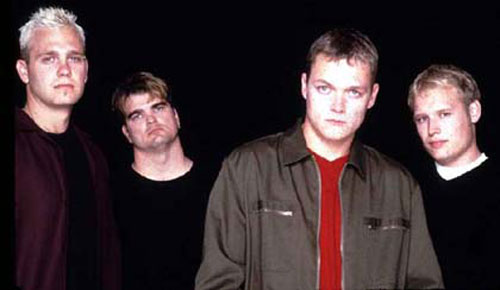A Rebellious Spirit: Brad Arnold’s Battle and the Echo of True Rock
Explore Brad Arnold's battle with cancer and its reflection on the essence of true rock, challenging the commercialized music industry.

In a world where mainstream music often feels like a cotton-candy dreamscape—sweet, airy, and instantly forgettable—comes a moment of genuine gravity. Brad Arnold, the voice that propelled 3 Doors Down into our collective playlists, stands at the precipice of life's stage 4 challenge. As he battles kidney cancer with the same defiance and authenticity that defined the post-grunge era, his story strikes a chord of raw emotion and rebellion that mainstream culture seems to have forgotten.
The Unyielding Voice of 3 Doors Down

3 Doors Down isn't just a band; it's a cultural touchstone for those of us who crave rock that echoes the tumult of real life. Their 2000 hit “Kryptonite” wasn’t just a song—it was a rallying cry, a declaration for those who ever felt invincible yet vulnerable. Arnold’s recent diagnosis and the subsequent cancellation of their tour, especially alongside fellow '00s icons Creed, feels like a rupture in the thin veneer of today’s music scene—an emotional eruption amidst the relentless drumbeat of pop predictability.
Arnold’s announcement is more than a personal health missive; it's a reminder of the profound vulnerability and strength inherent in rock. It's a call to remember that the music that defined an era was born from raw, unpolished emotion—not algorithmic perfection. His courage to face down cancer with the same grit that characterized his career stands in stark contrast to the hollow hype machine of today’s pop culture.
Challenging the Gloss

While Arnold gathers strength from spiritual resolve, the rock community's response is steeped in genuine solidarity—an aspect jarringly absent in today’s commercialized music industry. Here we shift focus to the insidious nature of modern music advertising: the glossy, airbrushed facade that packages “artists” as voided vessels of authenticity, sanitized for maximum commercial appeal.
With potential changes on the horizon for advertising compliance, the music industry faces a moment of truth. Could this legal pressure be the catalyst needed to dismantle the suffocating layers of artificiality? Imagine a landscape where today’s artists, often groomed to fit market molds rather than musical molds, are pushed to strip back the layers of commercialized gloss. The prospect of advertising reforms could pressure the industry to pivot towards authenticity—music crafted not for superficial allure, but for substantive resonance.
The Dangerous Call of True Art
Arnold's battle is a reminder that real art stems from the fragility and fierceness of human experience—a notion rarely nurtured in the algorithm-ruled music landscape. As we watch this story unfold, we’re left yearning for revolutions of the past, for the spirit of rebellion that once set rock and roll ablaze.
In a world swaddled in the safety blanket of mainstream malaise, Arnold’s courage and defiant optimism stand as a beacon for those of us who remember—who feel, still, the pulse of true rock echoing through our veins. His is a tale of resilience and resistance, and it is this spirit we must preserve and protect against a backdrop of commercial conformity.
Perhaps in Brad Arnold's defiance, we find a flicker of hope—a rebellious whisper that the world still aches for real rock, real danger, and real emotion.




